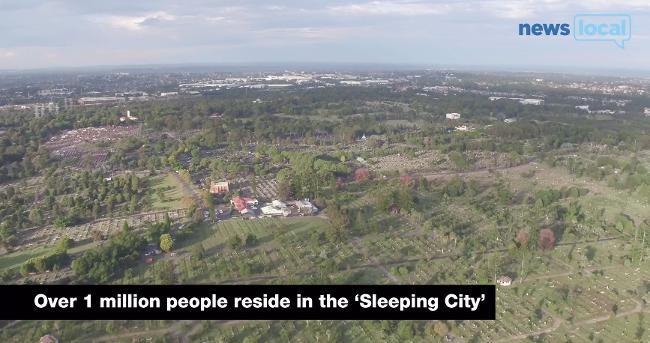New NSW legislation allowing rentable graves to be scrutinised in public inquiry
A NEW law that critics have said allows “loved ones to be dug up” will be referred to a public inquiry.

A “MACABRE” new law change that means the dead have to effectively rent their own graves, and could be dug up if they don’t keep up the rent on their plots, is set to be put under the spotlight.
In late June, the NSW Government passed changes to the Cemeteries and Crematoria Act that will, for the first time, allow graves to be rented for periods of 25 to 99 years for people who can’t afford the fees for a permanent grave.
If the right to the plot isn’t renewed by relatives of the deceased stumping up more cash, the headstone could be removed, with remains put into a communal “bone room” and the patch of ground re-let.

The decision to allow rentable graves will now be put under the spotlight by the newly established Upper House Regulation Committee which could urge changes.
Labor has criticised rentable graves. Opposition lands spokesman Mick Veitch said it was a direct result of the State Government failing to invest in space for new cemeteries.
“This is a macabre proposal which will impose horrible choices on many families,” Mr Veitch said.
“This regulation will lead to two classes of burials: permanent monuments for those who can afford it and those who can’t afford it will be forced to see their loved one dug up.”
A spokeswoman for NSW Minister for Lands and Forestry Paul Toole said burials were a “sensitive issue” that should be treated with dignity and the legislation allowed “equal access to interment services for all”.
This would be a cheaper option than a “perpetual internment right” where the remains are undisturbed forever.
A year before the rental period expired cemeteries would have to “telephone, post and email” family members, or if that fails, use Facebook and Twitter, to see if they want to continue paying for the patch of soil.

The grave rental could be renewed each time for a maximum of 99 years.
If the family declined to renew the grave, or couldn’t be found, then after two years the remains and memorial could be removed and the plot reused.
The remains would be rehoused in somewhat tighter premises in an ossuary house, otherwise known as a bone room.
The inquiry into the legislation will take submissions until September 7 with a report due in late October.
Religious groups and organisations working with people on low incomes are among those who have been invited to submit their views on rentable burial plots.
“This Government has had eight years in which to identify appropriate sites for new cemeteries but has done little,” Mr Veitch said
“In fact last year it rejected a proposal for a new cemetery — and now comes back with a plan to dig up loved ones and sell the plot to a complete stranger.”

But the minister said renewable internment rights would help existing cemeteries remain sustainable.
“The NSW Government respects the beliefs of all religious and cultural groups and is committed to ensuring equal access to interment services for all,” Mr Toole said.
“The regulation provides further direction for cemetery operators if they choose to offer renewable interment. The regulations were finetuned to reflect feedback following a draft that was released last year.
“Renewable interment is not compulsory, nor is it retrospective. This voluntary option for future burials would provide a 25-year interment right, renewable for up to 99 years. “Conventional practices such as perpetual interment and cremation will continue to be available.”
NSW Jewish Board of Deputies chief executive Vic Alhadeff said: “It is clearly stated in the Act that graves which are used by a religious or cultural group that require perpetual burial may not be re-used.
“This means the Jewish community’s religious needs in the burial space are not at risk from the newly introduced right to re-use graves.”
As well as the NSW Jewish Board of Deputies, news.com.au contacted a number of religious organisations including the Archdiocese of Sydney, Greek Orthodox Diocese, Lebanese Muslim Association and also the NSW Council of Social Service (NCOSS) but they
did not respond by deadline.




